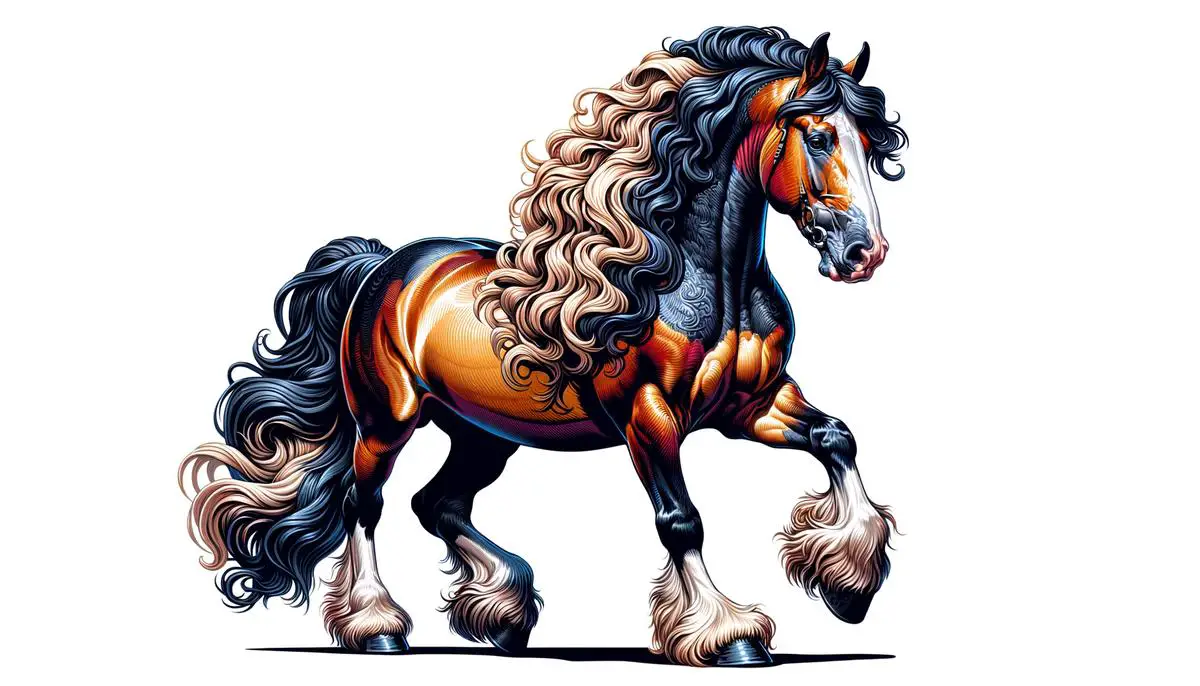Exploring the rich tapestry of France’s horse breeding history, this article embarks on an exploration of how this nation galloped into prominence within the equine world. From the royal interests that seeded an enduring legacy to the government policies that nurtured growth and innovation, we unravel the layers that constitute France’s leadership in horse breeding. The narrative weaves through the significant economic and cultural impacts, shedding light on both the challenges and the innovations that are shaping the future of the French equine industry. Without stepping into the specifics just yet, this introduction sets the stage for a detailed examination of a tradition that has evolved into a significant cultural and economic force.
Table of Contents (Horspedia)
History of Horse Breeding in France
France and Its Rise to Leadership in Horse Breeding
So, you’re curious about how France trotted its way up to becoming a leader in horse breeding? It’s quite the ride, but let’s break it down in a way that’s easy to grasp, without galloping too fast through history.
France’s journey to the forefront of horse breeding didn’t happen overnight. It’s a story that combines royal passion, government policy, and a keen sense of tradition. Let’s saddle up and explore the key factors that propelled France into the winner’s circle of horse breeding.
Royal Passion Sparks a Tradition
It all starts with the French royalty’s love affair with horses. Way back in the 16th and 17th centuries, French kings like Louis XIV were massive horse enthusiasts. They weren’t just looking for a quick trot around the palace gardens; these monarchs dreamt of majestic steeds that could excel in battle, hunting, and carriage pulling. This royal obsession laid the groundwork for a country-wide appreciation and dedication to horse breeding.
Government Gets in the Saddle
The French government didn’t just sit back and admire the horses from the royal balconies. Instead, they played an active role in shaping the breeding landscape. One of the game-changer moves was the establishment of national stud farms, known as “Haras Nationaux,” in the 1660s. These weren’t your average backyard barns. The government equipped these stud farms with top-notch stallions from across Europe. The goal? To improve horse breeds not just for the nobility, but for agriculture, transportation, and the military. This move demonstrated the strategic importance France placed on horse breeding.
Breeding for Excellence
France’s approach to horse breeding is all about excellence and specialization. Over the centuries, they’ve fine-tuned their breeding practices focusing on specific traits for different horse disciplines. For example, the Thoroughbred for racing, the Percheron for draft work, and the Selle Français for show jumping. By concentrating on the strengths and characteristics each discipline required, French breeders could produce horses that not only excelled in their fields but also caught the attention of the international horse community.
Innovations and Influence
Innovation has been key to France’s leadership in horse breeding. French breeders were among the first to really get into the nitty-gritty of genetics and selective breeding. They weren’t just mixing and matching horses willy-nilly. They looked at traits, bloodlines, and performance, applying a scientific approach to breeding long before it was the norm.
Their influence can also be seen in how other countries’ breeding programs look up to the French model. The techniques, practices, and the very breeds developed in France have spread far and wide, shaping the global landscape of horse breeding.
Looking to the Future
Today, France isn’t just resting on its laurels. The country continues to invest in research, breeding programs, and facilities that keep it at the forefront of horse breeding. From the racetrack to the Olympic games, horses bred in France are making headlines, winning prizes, and, most importantly, winning hearts all around the world.
Getting into the world of French horse breeding shows us how a nation’s love for horses grew into a significant cultural and economic force. It’s a testament to the power of dedication, strategic vision, and a deep respect for the majestic creatures that horses are. Whether for work, sport, or pleasure, French-bred horses carry with them a legacy of excellence that’s recognized the world over.
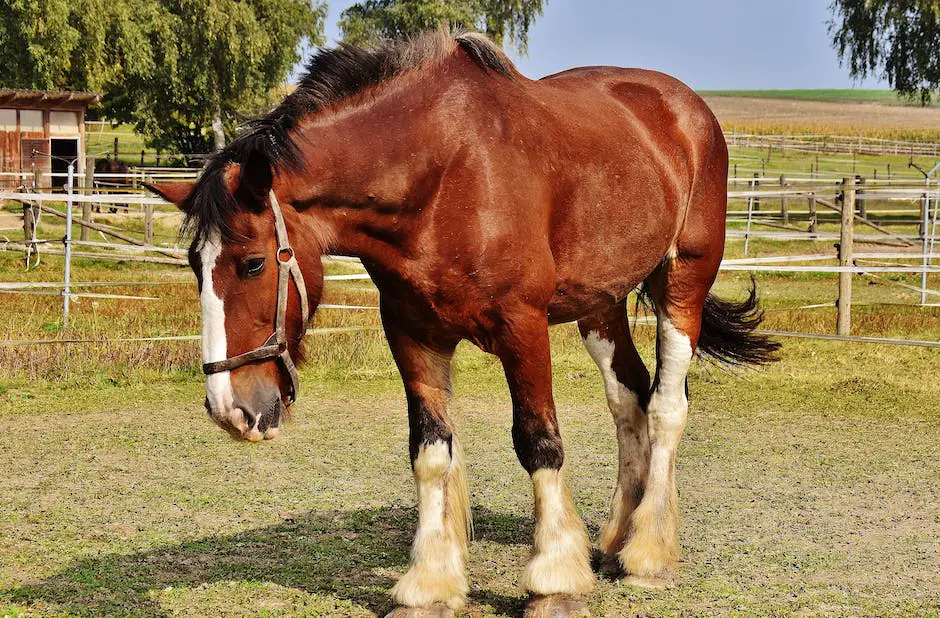
The Economic Impact of the Equine Industry
The Economic Horsepower Behind France’s Equine Industry
France’s love for horses isn’t just a cultural passion; it’s a driving force in the country’s economy. When we talk about the equine industry in France, we’re looking at a sector that blends tradition with high-stakes business, producing results that resonate not just within its borders but across the global stage.
First things first, horse racing is a big deal in France. With prestigious events like the Prix de l’Arc de Triomphe, the country is a hub for high-profile races that attract visitors and bettors from around the world. But it’s not just the races themselves; it’s the entire ecosystem surrounding them, from the breeding and training to the betting and tourism, that pumps money into the French economy.
Now, let’s talk numbers. The equine sector supports tens of thousands of jobs in France, from veterinarians and trainers to jockeys and stable hands. This industry isn’t just about the love for horses; it’s a livelihood for a significant number of people. And we’re not just talking direct employment; think about the hay farmers, equipment suppliers, and all the other businesses that thrive by catering to the needs of the equine industry.
Breeding is another cornerstone of France’s equine economy. French breeders are world-renowned for their expertise, producing horses that excel not only in racing but also in show jumping, dressage, and eventing. These horses don’t come cheap, and when they’re sold internationally, they represent a significant export income for the country. It’s like France is exporting its equine excellence, one horse at a time.
This brings us to the role of technology and innovation. In the quest to breed the best, France has embraced scientific advancements, from genetic research to innovative training methods. This forward-thinking approach not only keeps France at the forefront of the equine world but also drives investment and interest in the sector.
Moreover, there’s a significant cultural component to consider. Horse shows and equestrian events are not just about the competition; they’re social events that draw crowds, promoting local tourism and supporting small businesses. From the historic chateaux turned into equestrian venues to the rural areas that come alive during local horse festivals, France’s equine industry is a boon for tourism.
Finally, let’s not forget the sporting aspect. Equestrian sports are a point of national pride for France, with French riders and teams regularly performing well on the international stage. This success not only fuels interest in the equine industry but also encourages investment in training facilities, breeding programs, and the next generation of French equestrian talent.
In conclusion, the economic horsepower behind France’s equine industry is both robust and multi-faceted. From the race tracks to the breeding farms, and from the sporting arenas to the tourism it generates, horses are indeed a significant part of France’s economic landscape. While the passion for these majestic animals might be what sparks interest, it’s the business savvy, tradition of excellence, and continuous innovation that keep France’s equine industry galloping ahead.
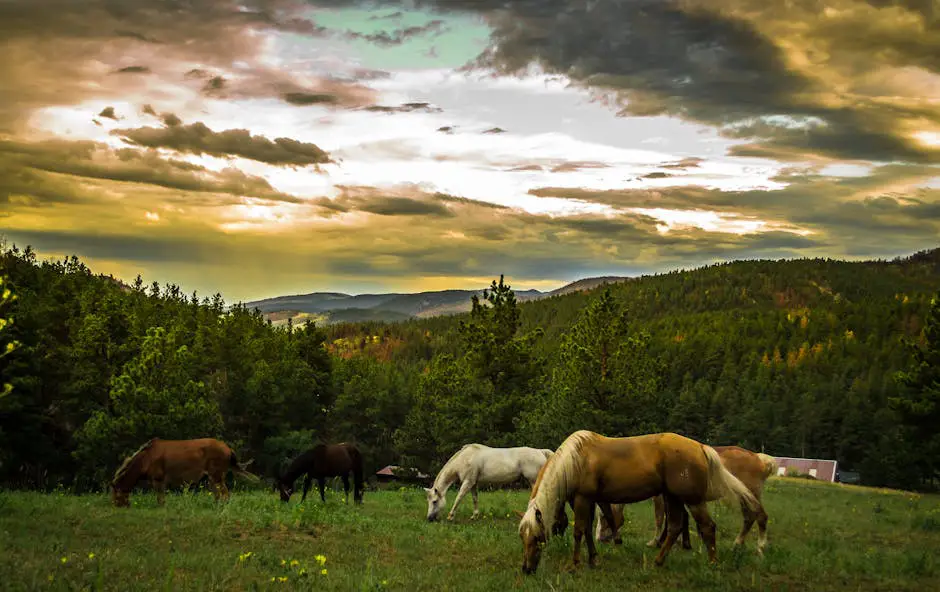
Cultural Significance of Horses in France
Alright, let’s gallop into how horses echo the heartbeats of French culture and society, beyond the paddocks of royal passion and the tracks of horse racing. Horses in France are not just about breeding excellence or the thrill of the race; they are woven into the very fabric of French life, symbolizing tradition, elegance, and the unbreakable bond between humans and nature.
Horse Riding as a Popular Pastime
Riding horses in France is more than a hobby; it’s a cherished pastime that spans across ages and sociale strata. From the rustic countryside of Normandy to the picturesque landscapes of the Loire Valley, horse riding schools dot the nation, nurturing a connection with these majestic animals from an early age. This universal love for horseback riding not only promotes physical well-being but also keeps alive a historical tradition that dates back centuries.
Artistic Reflections
French art and literature have long celebrated the horse’s majesty and spirit, capturing its essence in countless paintings, sculptures, and writings. The horse has served as a muse to many French artists, symbolizing power, freedom, and grace. This artistic admiration speaks volumes about the French aesthetic sensibility and the central role horses play in reflecting the nation’s cultural identity.
Horses in French History and Mythology
Horses also trot vividly through French history and mythology, their hoofprints marking significant events and tales. They were not only companions in battle but also symbols of prestige and power. Historical figures such as Napoleon Bonaparte were often depicted with their steeds, showcasing the importance of horses in leadership and conquest. Moreover, horses in French folklore often appear as magical creatures capable of heroic deeds, further cementing their place in the cultural and mystical landscape of France.
Equestrian Events as Social Gatherings
Equestrian events in France go beyond mere sports competitions; they are social and cultural gatherings that bring communities together. Events like the Prix de Diane and the Grand National du Trot are not just about the races; they’re festivities where fashion, gastronomy, and the fine art of living converge. These events reflect the French ethos of celebrating life and cherishing communal moments, making them emblematic of France’s societal values.
Conservation and Heritage
France’s dedication to horse conservation is noteworthy, with efforts focused on preserving native breeds such as the Camargue horse and the Breton draft horse. These efforts are not just about protecting biodiversity but also about safeguarding a living heritage, a connection to a rural way of life that has sustained France for generations. Through such conservation, France demonstrates a commitment to sustainability and respect for the environment, showcasing a balance between progress and the preservation of nature.
Conclusion
Horses in French society are a testament to the nation’s rich history, diverse culture, and its deeply ingrained respect for tradition and nature. Whether it’s through leisurely rides in the countryside, the artistic homage paid to these noble beasts, their role in history and legend, or the festive atmosphere of equestrian events, horses occupy a special place in the heart of French society. They mirror the elegance, strength, and spirit of France itself—galloping through the nation’s past and present, they continue to shape its future.
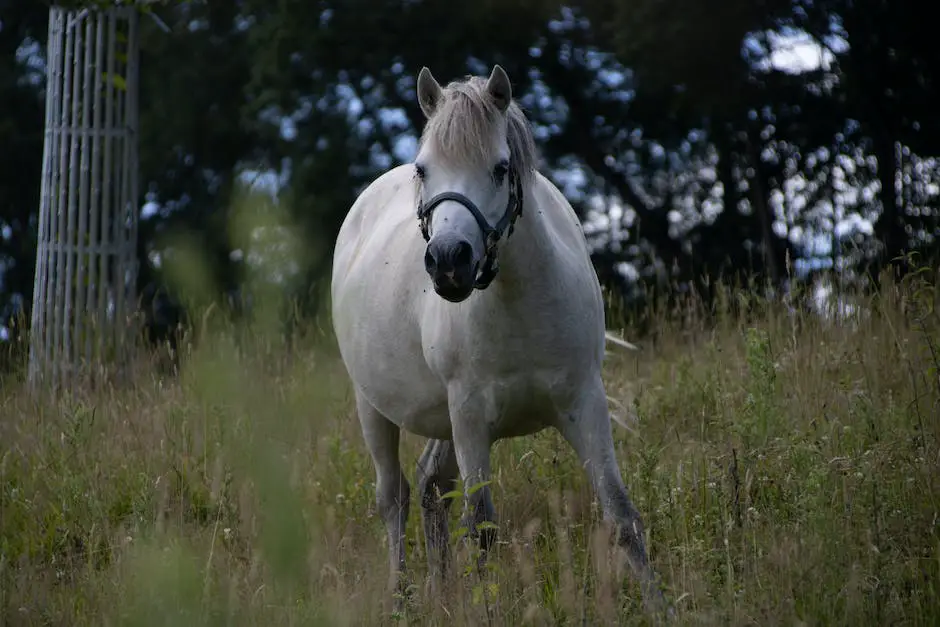
Innovations in Equine Care and Training
Embarking on a journey through France’s equine industry reveals its forward momentum powered by innovation. Let’s zoom in on cutting-edge developments that are framing the future of this vibrant sector.
Wearable Technology for Horses
First up, we’re looking into wearables—not your average smartwatches, but sophisticated gadgets designed for horses. Imagine a device tracking a horse’s heart rate, temperature, and overall health in real-time. These hi-tech wearables are not only revolutionizing how we monitor and manage equine health but also transforming training practices by offering insights into a horse’s condition and performance capabilities. It’s like having a fitness tracker for your horse!
Sustainable Practices in Horse Care and Facility Management
Sustainability is the buzzword across industries, and the equine sector is stepping up its game too. From eco-friendly stables that use solar panels and rainwater harvesting systems to natural horse care products minimizing chemical use, France is painting its equine future green. These initiatives not only promote environmental conservation but also ensure the well-being of the horses, making it a win-win for everyone.
Advancements in Equine Nutrition
What’s on the menu for tomorrow’s horses? The focus is shifting towards not just feeding but nourishing the equine athletes with precision. Cutting-edge research in equine nutrition is leading to the development of tailored diet plans enriched with supplements that boost immunity, enhance performance, and cater to the specific needs of individual horses. It’s like having a personalized nutritionist for each horse.
Stem Cell Therapy and Regenerative Medicine
The field of veterinary medicine is experiencing a revolution with the advent of stem cell therapy and regenerative treatments. These groundbreaking techniques are now being applied to heal injuries, treat chronic conditions, and improve recovery times for horses. Imagine a horse bouncing back from an injury that would have once been career-ending, all thanks to the miracles of modern medicine. France is at the forefront of adopting these life-changing treatments, promising a brighter future for equine health and welfare.
Virtual Reality and Training
Last but certainly not least, we’re diving into the realm of virtual reality (VR). Picture a training session where both rider and horse navigate through digitally rendered courses, perfecting their techniques in a controlled, virtual environment. This technology is not only enhancing training methods but also providing innovative solutions for rehabilitation and therapy. It’s a game-changer, offering endless opportunities for advancement in equine training and education.
In essence, France’s equine industry is galloping towards an exciting era dominated by technology, sustainability, and cutting-edge research. These innovations are setting the stage for a future where French equine prowess continues to flourish, leading the charge with grace, agility, and a deep respect for tradition melded with progress.
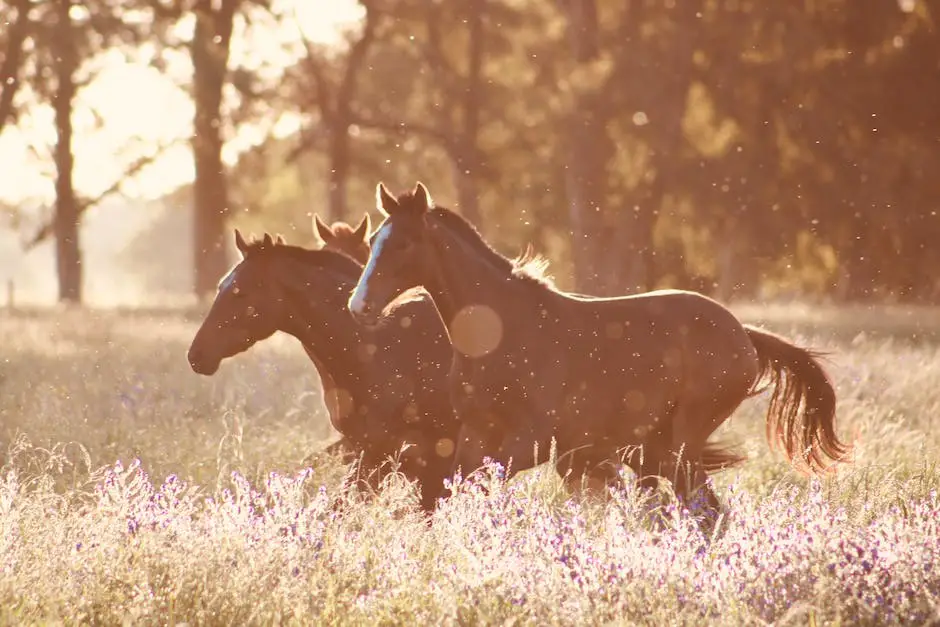
Challenges and Opportunities
The French equine industry, rich in tradition and innovation, faces a gallop of challenges even as it spots fresh pastures of opportunity. As we trot through the intricacies of this sector, it’s clear that the path ahead is no simple canter.
Challenges on the Track
- Rising Costs: First up, the cost of maintaining horses and running equestrian establishments has seen a steady climb. From the price of feed and bedding to veterinary care, owners and businesses find themselves navigating a steep financial hill. This economic squeeze could potentially lead to a decline in horse ownership and participation in equestrian activities.
- Environmental Concerns: The hoofprint of the equine industry on the environment is becoming increasingly scrutinized. Issues such as waste management, land use, and carbon emissions are at the forefront. Balancing the industry’s needs with those of the planet is a hurdle that requires innovative solutions.
- Veterinary Shortages: Finding specialized equine veterinarians is turning into a steeplechase. With the demand for high-quality care rising, the industry faces a shortage of professionals equipped to handle the unique needs of horses. This gap could impact the health and welfare of these majestic animals.
- Regulation and Red Tape: Navigating the maze of regulations can be as challenging as a cross-country course. From breeding to racing, each facet of the industry faces its own set of rules that can hinder growth and innovation. Finding a balance between oversight and freedom to operate is key.
Opportunities in the Paddock
- Technological Horizons: The digital revolution gallops onward, and the equine industry stands to benefit. From wearables that monitor horse health to platforms that bring equestrian sports to a global audience, technology presents an opportunity to enhance every aspect of the industry.
- Eco-friendly Innovations: The push for sustainability opens up a pasture of possibilities. From developing eco-friendly horse care products to promoting practices that reduce environmental impact, the industry can lead the charge toward a greener future.
- Health and Wellness: As awareness around equine health advances, there’s growing potential for innovations in nutrition, therapy, and holistic care. Products and services that promote the well-being of horses not only benefit the animals but can also carve out new market niches.
- Global Market Expansion: The allure of the French equine industry has always had international appeal. By capitalizing on this global interest, there’s an opportunity to expand into new markets, whether through exporting horses, sharing expertise, or broadcasting equestrian events worldwide.
The French equine industry, at the crossroads of tradition and modernity, is navigating a course filled with both challenges and opportunities. Addressing issues like rising costs and environmental concerns will require a collaborative effort and innovative thinking. At the same time, the industry’s potential for embracing technology, promoting sustainability, and expanding its global footprint underscores a future bright with promise. As it gallops ahead, the blend of heritage and innovation will continue to be its greatest strength.

As we stand at the threshold of the future, the French equine industry presents a fascinating blend of tradition and modernity, teeming with both challenges and opportunities. The resilience of this sector, underpinned by a rich heritage and propelled by continuous innovation, signals a dynamic pathway forward. With a commitment to sustainability, health, and technological advancement, France’s equine world is poised to maintain its leadership and enchantment. Amidst shifting economic and environmental landscapes, it is this spirited meld of heritage and innovation that will steer France’s equine industry towards a horizon filled with promise and continued global allure.
